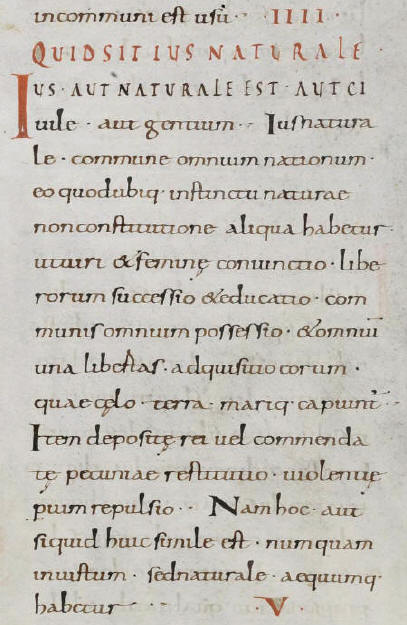
Sankt Gallen, Stiftsbibliothek 231, fol.
151 (880-890 A.D.) |
St.
Isidore of Seville (†
636), Etymologiae Book 5.4
Ius
naturale <est> commune omnium nationum, eo quod ubique instinctu naturae,
non constitutione aliqua habetur,
ut viri et feminae conjunctio,
liberorum successio et educatio,
communis omnium possessio et omnium
una libertas, acquisitio eorum, quae
caelo, terra marique capiuntur; item
depositae rei vel commendatae pecuniae
restitutio, violentiae per vim
repulsio. Nam hoc, aut si quid
huic simile est, nunquam injustum, sed naturale
aequumque habetur. (Natural ius is
common to all nations. It has its origins in nature not in any
constitution. Examples of natural law are the union of men and
women, the procreation and raising of children, the common possessions of
all persons, the
equal liberty of all persons,
the acquisition of things that are taken from the heavens, earth, or
sea, the return of property or money that has been deposited or entrusted.
This also includes the right to
repel violence with force. These
things and similar are never unjust but are natural and equitable.) |